
- For:
- Schools
Advice and practical tips to support school staff in preparing their students for the transition from school to further education.
Going on to further education can be very exciting, but it can also be a big change from life at school. It is normal for pupils to feel a mixture of emotions, from worries to excitement, from feeling concerned to having certain expectations for what it might be like.
Knowing what to expect and where to find support can help make this journey a little easier and a lot less daunting.
Below are some of the worries our Activists say they experienced after leaving school.
Academic worries are expected but the social worries around things like meeting new people, moving out and looking after myself - that was much scarier.
Often, we know the information young people receive about further education can be confusing and, at times, misleading.
Take a look at our myths and facts with your pupils to help them navigate through this.
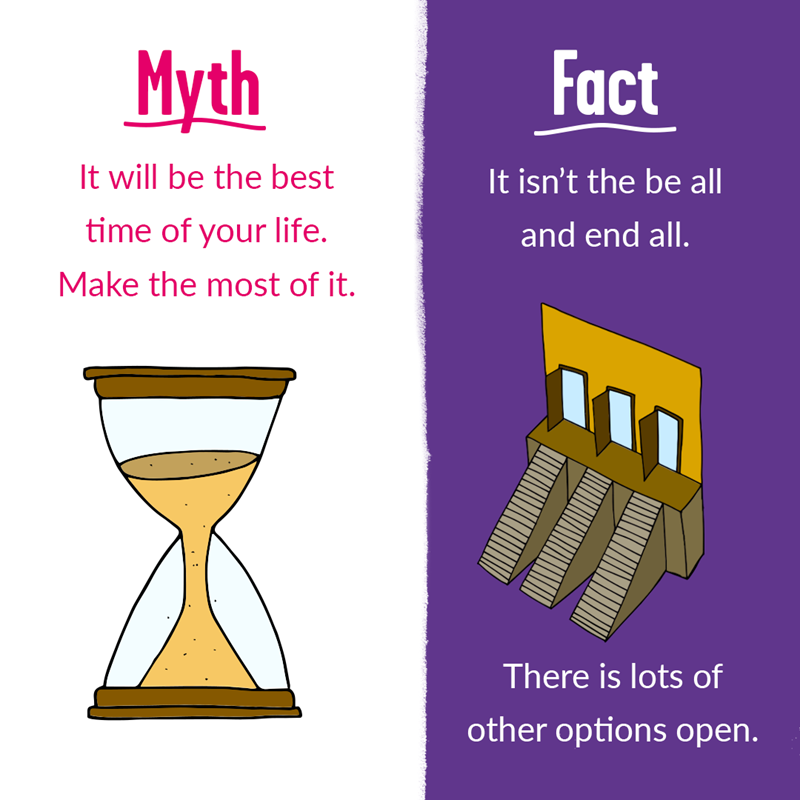
On the left is a cartoon drawing of a sand timer. Above the timer it reads in pink underlined: 'Myth'. Underneath 'myth' it reads in smaller text 'it will be the best time of your life. Make the most of it.' On the right of the image are three sets of stairs that lead up to three different open doors. Above the doors it reads in white underlined: 'Fact'. Underneath 'fact' it reads: 'It isn't the be all and end all.' Underneath the stairs the text continues: 'There is lots of other options open.'
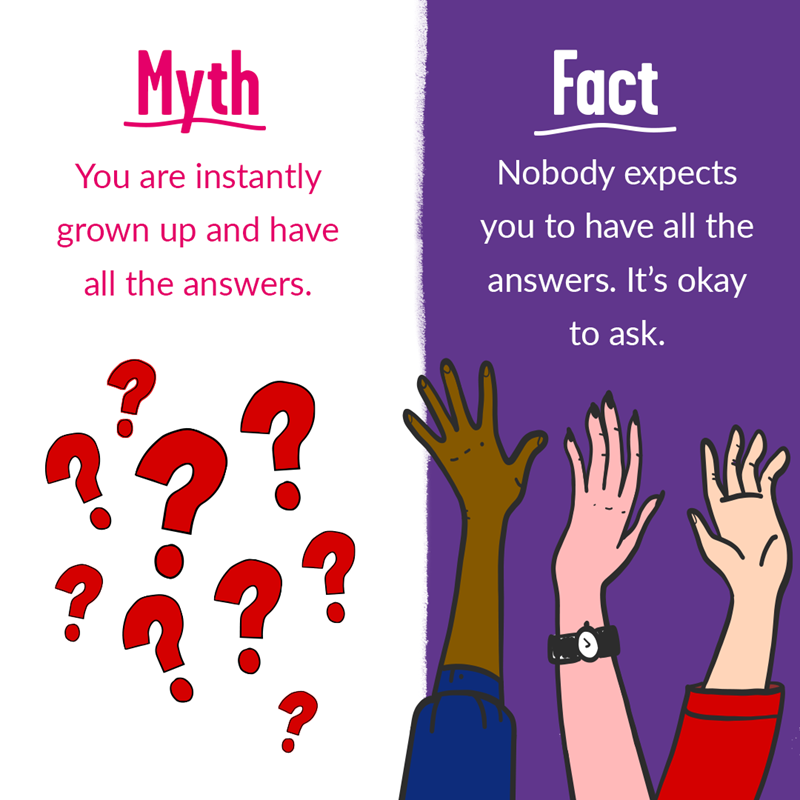
On the left, there are lots of red question marks. Above the red question marks is some pink underlined text which reads: 'Myth'. Underneath 'myth' the pink text reads: 'You are instantly grown up and have all the answers.' On the right hand side the background is purple with three different hands in the air. Above the hands it reads in white underlined text: 'Fact'. Underneath 'fact' the text continues: 'Nobody expects you to have all the answers. It's okay to ask.'
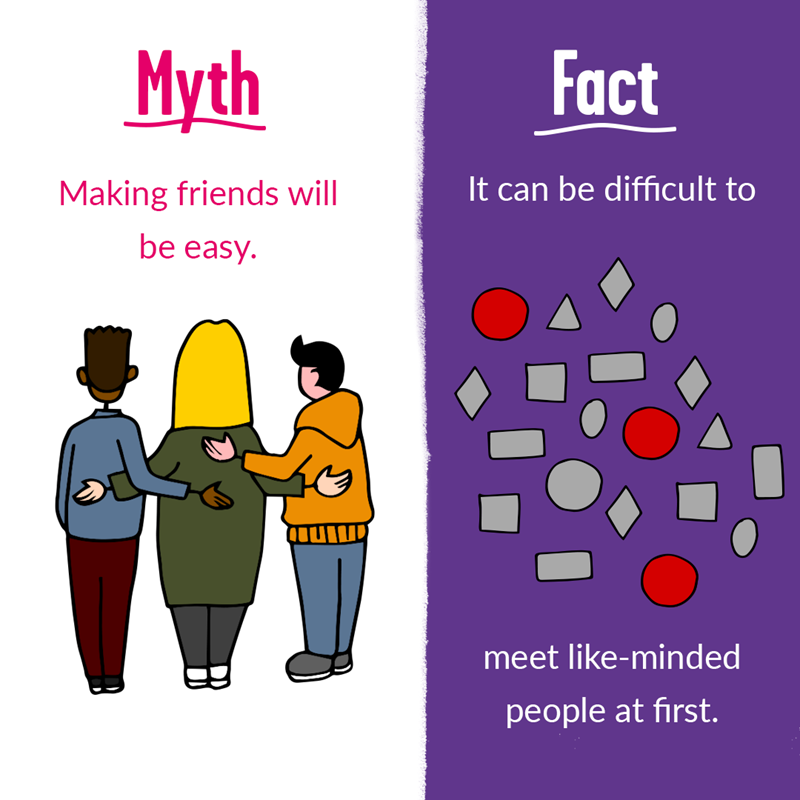
On the left is three cartoon people with their backs facing the front of the image. Their arms are all interlinked. Above them is pink text underlined: 'Myth'. Underneath 'myth' the text reads: 'Making friends will be easy.' On the right are different shapes against a purple background, with some shapes in grey and some in red. Above the shapes is white text underlined which reads: 'Fact'. Underneath 'fact' it reads: 'It can be difficult to'. Underneath the shapes the text continues: 'meet like-minded people at first.'
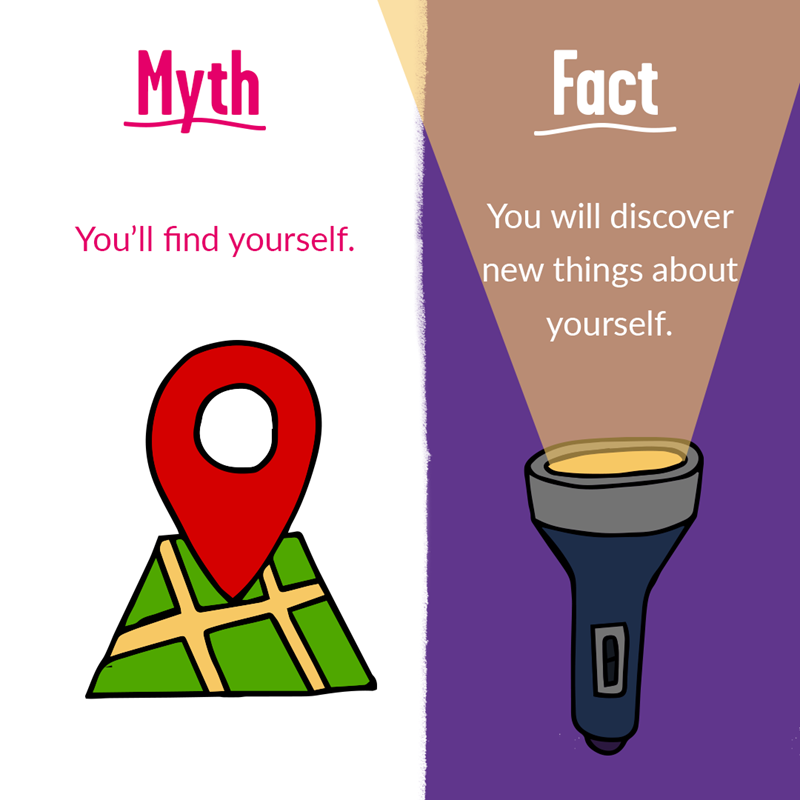
On the left is a cartoon drawing of a map icon with a red pin above the map. Above the pin and the map in pink text underlined it reads: 'Myth'. Underneath 'myth' it reads: 'You'll find yourself'. On the right is a torch lit up with the light facing upwards against a purple background. Towards the top of the light, the text in white and underlined reads: 'Fact'. Underneath 'fact' the text continues: 'You will discover new things about yourself.'
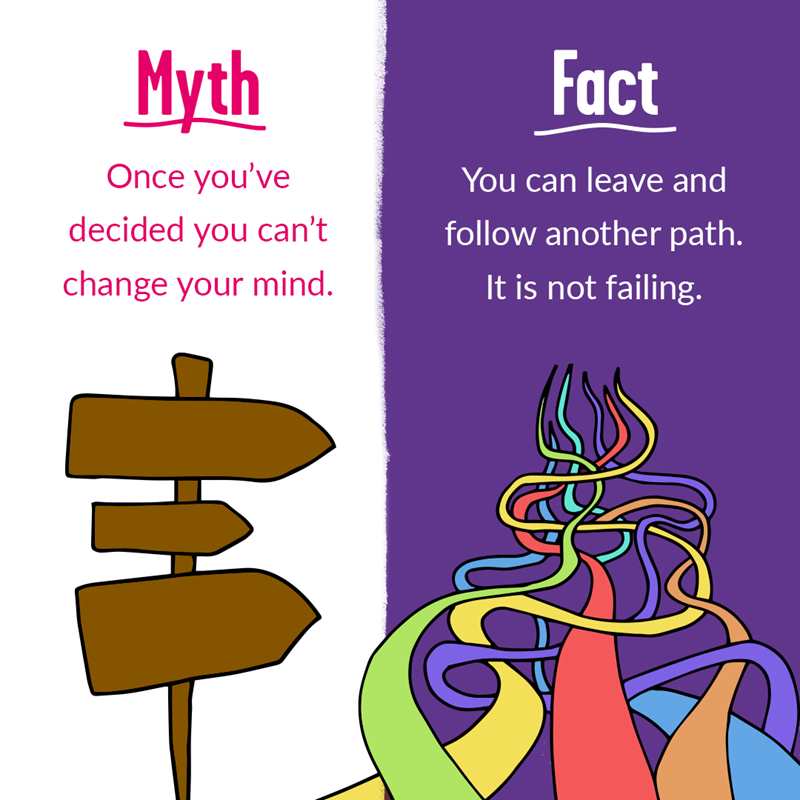
On the left of the image is a cartoon brown signpost which has three arrows all pointing in the same direction. Above the signpost the text is pink and underlined, it reads: 'Myth'. Underneath 'myth' the text continues: 'Once you've decided you can't change your mind.' On the right is a cartoon drawing of six different lines which are green, yellow, purple, red, orange and blue. They are all intertwined with each other and going different directions. The lines sit against a purple background. Above the lines is white text which is underlined. It reads: 'Facts'. Underneath 'facts' it continues: 'You can leave and follow another path. It is not failing.'
Share with your pupils some of the key questions our Teacher’s Insight Group and Activists suggest asking on an open day or campus visit.
Young people tell us that advice and support during the transition from school to university shouldn’t be standalone and there is a need for information to be shared across both schools and further education settings. Below are some tips that can help.
Finding out about your university’s leave of absence or extension policy ahead of time can be helpful, so you know it’s okay if you need more time to complete your studies.
We have information and advice for young people as well as parents that you might find useful to share with students and their families about university and times of change.
Whether you love the page or think something is missing, we appreciate your feedback. It all helps us to support more young people with their mental health.
Please be aware that this form isn’t a mental health support service. If you or a young person you work with is in crisis right now and wants to talk to someone urgently, find out who to contact on our urgent help page.
At YoungMinds we take your privacy seriously. If you’d like to read more about how we keep the information we collect safe, take a look at our privacy policy.